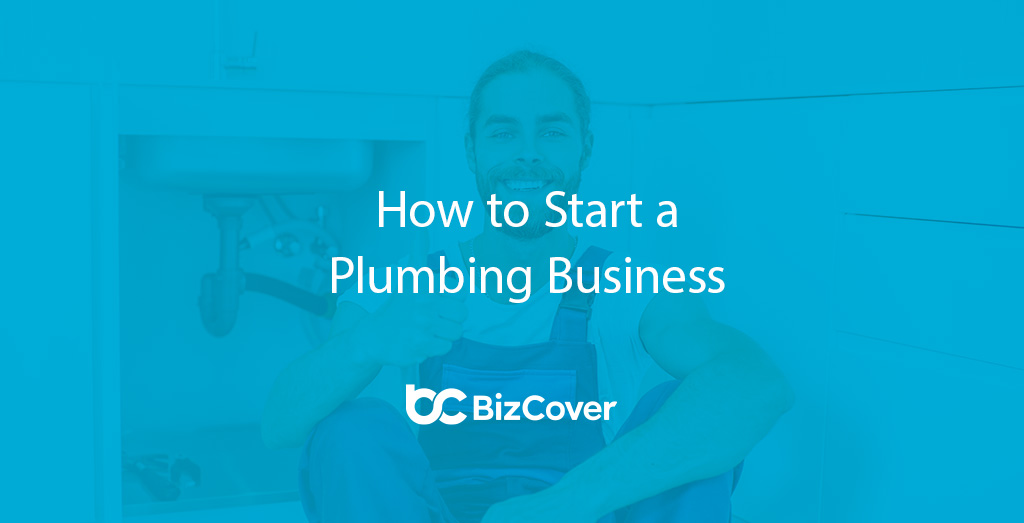How to start a plumbing business
Are you thinking of starting your own plumbing business? If you’ve always wanted to work for yourself and have the skills and experience, then beginning a plumbing business could have plenty of rewards and opportunities for you. In this guide, we’ll take a close look at the essential steps you can take to get started, covering everything from financial planning to purchasing insurance.
Key steps to setting up your own plumbing business
To ensure your venture is a success, consider taking the following steps before you kick things off.
1. Work out the details
Like any business venture, there needs to be a plan in place to help make your dream become a reality. Thinking about the nitty-gritty details that will make your plumbing business operational are essential to its long-term success.
These are some of the areas of your business you need to think about:
- Your finances: Start by working out how much you need to set up your business and what you will need to stay afloat. Having a chat with your accountant or a financial planner will point you in the right direction.
- Tools of the trade: Do you have all the right tools to help you get the job done? If you find yourself a bit short for cash, it might be worth looking at hiring any special equipment.
- A helping hand: Do you need to look at hiring an apprentice or another team member to help with jobs when things get busy?
2. Obtain the right licences
It’s important to check that you have the right licences in place before you start working. Each state and territory has their own rules and regulations so make sure you check with them directly:
- Queensland: Queensland Building and Construction Commission.
- New South Wales: Fair Trading: Plumbing, draining and gasfitting.
- Victoria: Victorian Building Authority.
- South Australia: Gov.AU.
- Western Australia: Government of Western Australia: Plumbers Licensing Board.
- Tasmania: Tasmanian Government: Consumer, Building and Occupational Services.
- Australian Capital Territory: ACT Government: Plumber, drainer and gasfitter licence.
- Northern Territory: Plumbers and Drainers Licensing Board.
3. Choose your business structure
There are a few different types of business structures that you need to consider when setting up your plumbing business. Within Australia businesses typically establish themselves as a:
- Sole trader: On your own.
- Partnership: Running a business with other people together but not as a company.
- Company: A legal entity that is separate from its owners.
- Co-operative: A business organisation that is owned by at least five members
4. Make your plumbing business official
To make your plumbing business official in Australia you will need to:
- Register your business name with ASIC.
- If required, register for GST.
- Get your Australian Business Number (ABN).
Another important step is to create an online presence. This can be achieved by setting up a website and social media profiles. This means people know you are open for business and can get in contact with you for potential jobs.
Insurance for your plumbing business
When you are looking at insuring your business, there are many different options available. This is a quick guide to some of the typical types of insurance you may need to consider as a plumber.
Public Liability insurance*
Public Liability insurance is designed to provide protection for you and your business in the event a customer, supplier or a member of the public brings a claim against you due to their being injured or sustaining property damage as a result of your negligent business activities.
Professional Indemnity Insurance*
Professional Indemnity insurance is designed to respond to claims against your business for losses as a result of actual or alleged negligent acts or omissions in the provision of your professional service or advice. It will also assist with the legal costs associated with responding to or managing claims which are covered by the policy.
Business Insurance*
Business Insurance is an insurance package designed to provide cover for your business contents, stock, tools and commercial premises when an insured event occurs (such as fire, storm, theft or even accidental damage). A Business Insurance package can also cover your portable equipment, glass and for loss of revenue due to business interruption in specified circumstances.
Portable Equipment cover*
Portable Equipment insurance (also known as General Property insurance) covers you for loss and damage to items of portable equipment associated with your business. These can include tools of trade and items of stock.
Personal Accident and Illness insurance*
Personal Accident and Illness insurance can provide cover should you become permanently disabled or pass away as a result of an accident. Cover can also include a weekly benefit for loss of income if you are unable to work as a result of an unexpected injury or illness (even if it occurs outside of your employment).
On the go cover for plumbers
Need help with getting your plumbing business insurance sorted? You can compare multiple quotes from selected leading Australian insurers in minutes, online or over the phone.
For on the go cover, go BizCover.com.au or call 1300 805 821.
© 2024 BizCover Pty Limited, all rights reserved. ABN 68 127 707 975; AFSL 501769
This information is general only and does not take into account your objectives, financial situation or needs. It should not be relied upon as advice. As with any insurance, cover will be subject to the terms, conditions and exclusions contained in the policy wording or Product Disclosure Statement (available on our website). Please consider whether the advice is suitable for you before proceeding with any purchase. Target Market Determination document is also available (as applicable). © 2025 BizCover Pty Limited, all rights reserved. ABN 68 127 707 975; AFSL 501769.



